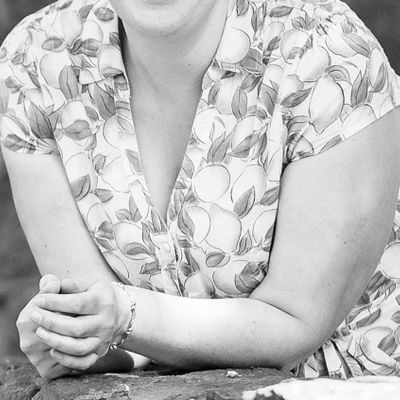
About this Event
Informed by group analytic ideas, this training day offers a practical approach to setting up and running an effective reflective practice group in an online setting. Within the training we will identify particular group processes that can help us understand and address potential obstacles to group functioning and allow for greater possibility of creating a thriving reflective practice online group.
Reflective practice has many benefits such as developing critical thinking about one's practice and thoughtful clinical judgement, enhancing emotional intelligence (how own actions affect others) and empathy (the ability to comprehend what another person is feeling, sympathising with those feelings, and the motivation to respond to those feelings), and improving relationship skills and the ability to consider the perspective of others .
However despite the known benefits of reflective practice groups and them being regularly championed by enthusiasts; reflective practice groups are notoriously hit and miss when it comes to being able to get one up and running. When the idea of setting a group up meets reality - facilitators also must navigate the unconscious life of the group . As such the group is met with difficulties with finding physical space for each group member in their own environment, technology challenges, changing timetables for group members, interprofesional politics, a reluctance to attend, systemic despair, or a drifting into group therapy rather than staying with the work task. So how might we bring into focus some of the hidden forces at play in groups?
This training day will be led by Dr Libby Nugent(Clinical Psychologist & Group Work Practitioner of Psychoanalysis).
Issues for exploration in the training include:
• Setting Up A Reflective Practice Group - Dynamic Administration
• Protecting Space and Creating a Culture of Support - Group Attachment
• What Happens Over Time in a Group - Group Development
• Working Together in a Group - Staying with the Group Task
• Conflict in Groups - Location of Disturbance
• Difficult Organizations - Social Matrix
It is expected that this training will give you skills in setting up and running an effective reflective practice group. Also that it will encourage you in developing your capacity to think more group analytically about reflective practice groups. There will be a focus on critical thinking about conscious and unconscious aspects of group dynamics.
The day is divided into a welcome session, three seminars and an ending session. Each seminar will involve a presentation of the main themes for discussion, followed by a reflective space for the group to explore the material together.
The day will be divided as follows:
Schedule
Friday 4th April 2025
9:30 - Welcome and Hellos. A space for the group members to share what brings you here, and discover who are we in the room with.
10:00 - Setting Up A Group
11: 15 - BREAK.
11:45 - Running The Group
13:15 - BREAK
14:15 - Trouble Shooting
15: 25 - Final Reflections and Goodbyes
15:30 - Home time
A PDF copy of the presentations and an Attendance Certificate will be sent following the event.
WHO IS THIS TRAINING FOR?
This training is for anyone interested in group analytic psychology and the running of reflective practice groups online. They may be of particular interest to psychologists, psychiatrists, nurses and psychotherapists and other healthcare professionals.
If you would like to join the mailing list regarding the groups I run please contact me at: [email protected] and mention this group.
RECOMMENDED READING
Einhorn, Sue. (2019). Reflective practice groups — a hall of mirrors. Chapter Seven in Group Analysis: Working with Staff, Teams and Organizations.
Kahneman, D., & Klein, G. (2009). Conditions for intuitive expertise: A failure to disagree. American Psychologist, 64, 515-526.
Kurtz, Arabella. (2019). How to Run Reflective Practice Groups: A Guide for Healthcare Professionals. 10.4324/9781351112994.
Lilienfeld, SO, Basterfield, C. Reflective practice in clinical psychology: Reflections from basic psychological science. Clin Psychol Sci Pract. 2020; 00:e12352. https://doi.org/10.1111/cpsp.12352
Novakovic, Aleksandra and Vincent, David. (2019). Group Analysis: Working with Staff, Teams and Organizations (The New International Library of Group Analysis) 1st Edition.
Pronin, E., Lin, D. Y., & Ross, L. (2002). The bias blind spot: Perceptions of bias in self versus others. Personality and Social Psychology Bulletin, 28, 369-381.
Convenor:
Dr Libby Nugent is a Clinical Psychologist & Group Work Practitioner of Psychoanalysis. She originally specialised in complex trauma, working in sexual health and HIV and also in chronic pain. She now works with individuals and groups in private practice. Her doctoral thesis was examining the processes involved in inter professional collaboration in CAMHS and she has a strong interest in Jungian and group analytic psychoanalysis. She is trained as a group work practitioner of group psychoanalysis and is currently in training to become a group psychoanalyst.
For the past ten years much of her work is to provide reflective spaces for both members of the public and also professional groups such as senior clinicians and pre-clinically qualified psychologists; Providing creative ways to think deeply about ourselves, each other, our society and the many identities we live.
She runs two long term reflective practice groups in her private practice and provides supervision to facilitators of reflective practice groups in the NHS.
She is a Chartered member and Associate Fellow of the British Psychological Society (BPS) and registered with the Health and Care Professions Council (HCPC).
*Refund: Tickets are non-refundable.
Event Venue
Online
GBP 120.00 to GBP 135.00












